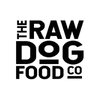August 19, 2020
The advantages of transitioning your beloved pet to a raw food diet are boundless, yet like any significant lifestyle change, the beginning can be the most challenging phase. As you contemplate the idea of replacing conventional kibble with a raw diet, it becomes crucial to acquaint yourself with the potential occurrences during the transition period. Equally important is to equip yourself with effective solutions to ensure both you and your furry companion sail through this transformation smoothly. Ahead of delving into our approach, here are some invaluable insights from the experts at Raw Dog Food Co. that will guide you through the process.
Start with Our Value Starter Box: Begin your pet's journey towards a healthier diet with our comprehensive starter box, designed to kick start their transition effortlessly, find details of our Starter Box here
Gradual Introduction of Rich Raw Foods: Patience is key during the transition. Introduce rich raw foods gradually, allowing your pet the necessary time to adapt to the new dietary regimen.
Timing Matters: Ensure your pet is slightly hungry (but not famished) before presenting raw food. This tactic increases the likelihood of their acceptance and reduces pickiness.
Consider Probiotic Supplements: Incorporating Kefir or Goats Milk into your pet’s meals can significantly aid in restoring a balanced digestive system during periods of upheaval or the transition to a raw diet. Find details on Goat Milk & Probiotics here
Monitor Eating Behavior: Keeping a close watch on your pet's eating patterns and habits will provide insights into their progress during the transition.
Embrace Patience: Overcome challenges, be it finicky eating or temporary side effects, with patience. The long-term benefits of a raw diet will justify your efforts.
Parting ways with kibble might be a breeze for you, but how can you seamlessly shift your cherished furry companion to a raw food diet? Our recommended strategy is a decisive "cold-turkey" approach. This method involves serving kibble on a Sunday and replacing it with nutritious raw food on Monday. Start with a simple bowl comprising lean meat like minced chicken cubes, along with green Tripe, and a modest portion of fibrous fruits and vegetables, such as blueberries and cucumber slices. Opting for a cold-turkey transition reduces the likelihood of digestive disruptions. Since kibble and raw food are processed differently, adopting this method minimizes the chances of stomach upsets. To ensure a smooth transition, allow your pet to experience slight hunger before introducing raw food. This way, their focus will be on appeasing their growling stomachs, and the new raw meal will be more readily accepted.
Much like any dietary alteration, certain side effects may arise. These occurrences are typically not indicative of a problem but rather signify your pet's adjustment to the new diet and their body's detoxification process after prolonged consumption of processed kibble. Normal side effects include diarrhea, bad breath, itchy skin, and odorous ears. These effects will gradually diminish as your pet becomes accustomed to the raw diet. However, should these symptoms persist or worsen, it's prudent to exercise your judgment and seek guidance from a veterinary professional well-versed in the raw food lifestyle.
If you harbor any reservations about transitioning your dog from kibble to raw, don't hesitate to reach out to us! The Raw Dog Food Co. team comprises of seasoned experts in the realm of fresh and natural raw diets. We're here to guide you every step of the way, ensuring your pet's journey towards optimal health is a seamless and rewarding experience.
July 13, 2025
Thinking about feeding your dog raw? You’re not alone! More Kiwis are making the switch to raw dog food to keep their pups healthy and happy. Check out the benefits, tips, and best options in NZ!
February 01, 2025
Want to give your dog the best? Discover everything you need to know about homemade raw dog food in NZ! From simple recipes to local ingredient tips, we make it easy to feed your pup fresh, healthy meals they’ll love.
January 13, 2025
Looking for simple and healthy raw dog food recipes in NZ? Discover easy homemade meals using fresh, local ingredients that your dog will love. Perfect for Kiwi dog owners wanting to boost their pup’s health naturally!
Join our mailing list for news, updates and special promotions.
© 2025 The Raw Dog Food Co.
Auckland, New Zealand
Powered by Shopify
